The Super Transcriptionist: transcribing with technology
Interview from the Career Series - A Day in the Life of a Transcriptionist
Marleen Graham
8/16/20244 min read


(Source: Simon Says )
For the modern transcriptionist, technology advancements have become a double-edged sword. On one hand, transcription software, cloud file-sharing services, and transcription foot pedals have vastly improved the industry's capabilities. Not to mention, with the near ubiquity of smartphones, and the multitude of ways to both record and distribute audio, the need for transcriptions and for transcriptionists has grown exponentially. However, the transcription process is still incredibly manual and, even with the introduction of speech recognition, remains relatively unchanged.
Despite the primary purpose of transcription (to convert sound files to readable documents), a transcriptionist's job involves much more than typing. In a 2015 interview posted to LinkedIn, Lenna K. Millar, director of Audio Transcription & Secretarial Services (ATS), outlined the complexities of her work. Proofreading, editing, and rapid knowledge acquisition are just some of the additional skills required for accurate and complete transcription, but there's more.
Career Series - A Day in the Life of a Transcriptionist
by Marleen Graham
What Skills Are Required to Become a Transcriptionist?
Many people are thinking outside of the box and looking into other career paths, when they cannot find a job in their current field. Have you ever wondered what others are doing and what it takes to do those jobs?
Some time ago, I interviewed Lenna K. Millar of Audio Transcription Services (ATS), to find out what it's like to be a Transcriptionist and what skills are required to transition into that career. The following is a transcript of our questions and answers interview:
Why did you decide to become a Transcriptionist?
I was so determined to find work at home that paid real money. I utilized my secretarial experience and emailed a transcription company to introduce myself and make myself available.
A woman at the company responded quickly and offered me work. She told me what equipment I needed and I got it within a week, started transcribing interviews for her and getting paid. I was none-the-wiser how it all worked.
When did you start, and how long did it take you setup your business?
It was in April 2009. Very soon after I emailed another lady and we exchanged about 50 emails that night and I got loads of work through her.
Setting up the business basically began the day I emailed the first lady for work; getting the equipment I needed and commencing the work. Then with the second lady she told me to get a website. I did; she created it, hooked me up with first-class webhosters, designers, in Canada. Within one week of my site going live, I started getting work and still am today through my website.
What does a Transcriptionist do?
We do more than type; that's for sure. We convert audio/digital sound files into an MS Word document. We listen to the audio, we decipher the often gargled words amid the train noises, the cars, motor bikes, recordings at a cafe. We tune in to what the speakers are saying. We make judgment calls; we use our discretion. We then listen to the audio again, run through the document, proofing to pick up anything we may have left out to make sure we captured correctly.
What skills are required?
The most important skills are auditory, typing, transcribing, proofreading, editing, grammar, punctuation, ability to focus and tune in. A knowledge and understanding of different verbatim formats is also useful.
I was fortunate with a large repertoire of skills in typing, secretarial, legal, business, professional background, loads of training over years of writing, reading, listening, communicating and vocabulary skills.
To become a Transcriptionist, make sure you're committed to the task of getting it right and not settling for anything less. Not perfection but close to it!
What is the difference of a transcriptionist and a Secretary (Administrative Assistant)?
A transcriptionist types and transcribes the content of an audio digital sound file into a Word document. I listen to the audio, and transcribe the voices I hear and what they're saying, anywhere from 2 to 10 people. A Secretary can transcribe also if she/he offers that skill and service, but in addition to that, they offer lots of other services such as excel spreadsheets, diaries, resumes, audio typing of correspondence, admin, etcetera. I am both.
What is a typical day like for you?
Lots of admin stuff. When I have quiet times, I market and promote my website and it pays off when the work pours in. I take lots of breaks, I run errands, I come and go as I please!
Do you need special equipment to transcribe?
Yes, transcription software. You can get it free online or purchase it which I did, the Olympus AS-2400, a head-set and foot pedal.
Where do you find clients?
I have worked hard to market my website and through that, they find me, thanks to good ole Google. I also advertise all over the internet. I submit my site and promote it here, there, and everywhere.
Who are ideal clients for transcription services?
Wow, there's no end. Um, law firms, accountants, governmental authorities, courts, police, mental health services, hospitals, business owners (small to medium), to corporate, authors, publishers, writers, actors, students, lecturers; the list goes on.
What do you enjoy the most about transcribing?
Getting it right and producing what I call a "fully furnished transcript." I enjoy the challenge of transcribing for someone new, learning new topics, saving thousands of dollars for all the free knowledge! I enjoy doing an excellent job and getting positive feedback.
What challenges do you occasionally face, and how do you overcome them?
At first the big challenge was to persevere and not give up because it took a long time for the work to become regular. It would come in spurts and off and on. When it rained it poured. But all the hard work promoting my website has paid off as I have never been so busy as I have been these past weeks with orders coming in every week.
What advice would you give to someone who is thinking about becoming a Transcriptionist?
If you're not already skilled, get skilled and learn how to type and Google what it means to transcribe. You can do it if you have willingness, commitment, focus, determined, skills to type especially, and ability to follow instructions. You can work from home and get started quickly.
Copyright © Audio Transcription & Secretarial Services (ATS), All Rights Reserved

